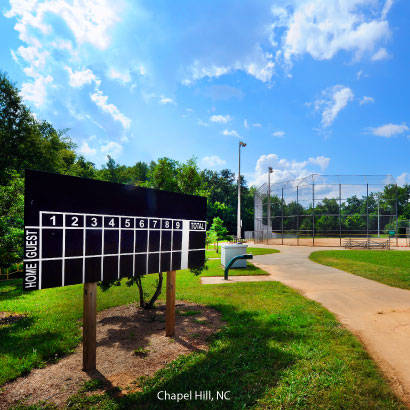
After a third Continuing Resolution (CR) for FY2017 was put into place to fund the government through May 5, a bipartisan omnibus spending agreement was released on Monday that will now fund the government through the end of the fiscal year in September.
Fortunately, in many areas, the FY2017 omnibus does not necessarily mirror the drastic cuts seen in the Administration’s blueprint of a FY2018 budget released in March. We hope this is a sign that appropriators are not inclined to match the Administration’s requests to reduce or eliminate federal funding for key programs.
The FY2017 omnibus actually increased funding for the 21st Century Community Learning Centers program by $25 million and kept funding at the FY 2016 level for the Community Development Block Grant program, both of which were slated for elimination in President Trump’s skinny budget. Learn more details on specific cuts identified, to date, in the President’s budget.
Key to NRPA’s health and wellness priorities, the Centers for Disease Control (CDC) faces an overall $13 million cut from FY2016, including $891,300,000 in transfers from the Prevention and Public Health Fund (PPHF). Additionally, the Partnerships to Improve Community Health (PICH) program concluded in FY2016 and the agreement does not include funding for continuation on PICH activities.
This does signal that PPHF continues to be used as a slush fund to pay for non-preventative programs, contrary to its intended purpose when created as part of the Affordable Care Act. NRPA will continue to advocate for PPHF funds to be used for innovative community based prevention and public health work, including park and recreation based programs and to protect it during ongoing attempts to repeal and replace the ACA.
Fortunately, other CDC prevention programs that NRPA follows did not necessarily take a direct hit:
- $11 million for CDC Arthritis Program, which maintains the significant boost gained in FY2016.
- $22.5 million for National Diabetes Prevention Program (NDPP), an increase of $2.5 million from FY2016, and directs all new funds to support new program providers, including a focus on rural providers.
- $50.95 million for the Racial and Ethnic Approaches to Community Health (REACH) program, where $34.95 million is provided to begin a new five-year cooperative agreement for community programs and $16 million is for Good Health and Wellness in Indian Country.
Other programs key to park and recreation priorities saw a relative maintenance of their funding levels:
- $400 million for the Land and Water Conservation Fund (LWCF), a decrease of $50 million from the FY2016 enacted level, but the State Assistance program remains level at $110 million.
- $94 million remains for state formula grants.
- $12 million remains for the Outdoor Recreation Legacy Partnership competitive grant program.
- $800,000 is added in administrative funds for a total of $4 million.
- $386 million for AmeriCorps grants, which is the same as the FY2016 enacted level.
- $500 million for the popular infrastructure investments grant program known as TIGER, which is also level with FY2016.
An example of new, or additional, funding includes $2.3 billion for Clean Water and Drinking Water State Revolving Funds (SRFs), along with additional support for water infrastructure financing, known as WIFIA.
Congress is expected to approve the FY2017 omnibus spending bill by May 5 and send it to the President for his signature. By all accounts, the final FY2017 spending package has proven to be a bipartisan agreement which (mostly) protects funding that local park and recreation agencies depend upon.
However, Congress has put off answering the tough questions raised by President Trump’s initial funding request for FY2018, including cutting over $50 billion for non-defense discretionary programs. The President is expected to release the complete details of his FY2018 budget request later this month. NRPA’s Public Policy Team is already turning our focus towards fighting to protect funding for important policy priorities during what will certainly be a challenging budgetary debate this year.
We need you to help advocate for federal funding for local parks and recreation by showing your members of Congress your parks and programs first-hand. If you have an event coming up on your calendar, turn it into a Park Champion event by inviting your members of Congress! It’s easy to plan a Park Champion event with our interactive Park Champion Advocacy Toolkit. If you host a Park Champion event by August 31, you’ll be eligible for prizes and recognition at NRPA’s Annual Conference in New Orleans.


